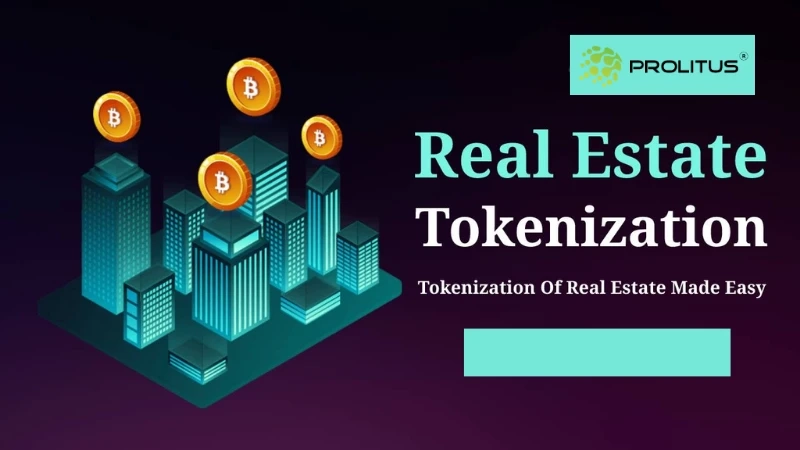Introduction:
The real estate industry, traditionally seen as one of the most stable investment sectors, is undergoing a significant transformation thanks to blockchain technology. Real estate tokenization development is at the forefront of this change, offering a new way to invest in and own property. This innovative approach leverages blockchain technology to divide property into digital tokens, democratizing access to real estate investment and streamlining the entire process. This article delves into the concept of real estate tokenization, its benefits, challenges, and its potential impact on the future of real estate investments.
Understanding Real Estate Tokenization:
Real estate tokenization is the process of converting property assets into digital tokens on a blockchain. Each token represents a portion of the property, allowing for fractional ownership. This means investors can purchase tokens representing a share of a property, rather than needing to buy the entire property outright. These tokens can be traded on digital platforms, making real estate investment more accessible and liquid.
Key Features of Real Estate Tokenization Development:
Fractional Ownership: Tokenization allows multiple investors to own a share of a property, making real estate investment accessible to a broader audience.Increased Liquidity: By converting real estate into tradable tokens, properties can be bought and sold more quickly and easily, enhancing market liquidity.Transparency and Security: Blockchain technology ensures transparency in transactions and secure storage of property records.Global Access: Tokenization opens up the real estate market to international investors, enabling cross-border transactions with ease.Advantages of Real Estate Tokenization:
Democratization of Investments: It lowers the barrier to entry for real estate investment, allowing smaller investors to participate.Efficiency in Transactions: Blockchain technology streamlines the transaction process, reducing costs and eliminating intermediaries.Portfolio Diversification: Investors can diversify their portfolios by investing in multiple properties worldwide with smaller capital outlays.Regulatory Compliance: Tokenization can incorporate regulatory compliance, ensuring legal transactions and ownership transfer.Challenges in the Tokenization Process:
Despite its advantages, real estate tokenization faces several challenges:
Regulatory Hurdles: Navigating the complex legal landscape of real estate and securities law can be challenging.Market Adoption: Widespread acceptance of tokenized assets by both investors and regulators is still in progress.Technology Integration: Integrating blockchain technology with existing real estate processes requires technical expertise and infrastructure development.The Future of Real Estate Tokenization:
The future of real estate tokenization is promising. As the technology matures and regulatory frameworks adapt, tokenization could become a standard method for real estate transactions and investments. It has the potential to make real estate markets more efficient, transparent, and accessible, transforming how property investment is perceived and executed globally.
Conclusion:
Real estate tokenization development marks a significant step forward in the evolution of property investment. By leveraging blockchain technology to tokenize real assets, this innovative approach offers a more inclusive, efficient, and transparent way of investing in real estate. As we move towards a more digitized and globalized world, the tokenization of real estate assets could redefine the landscape of property investment, making it accessible to investors of all sizes and backgrounds.



